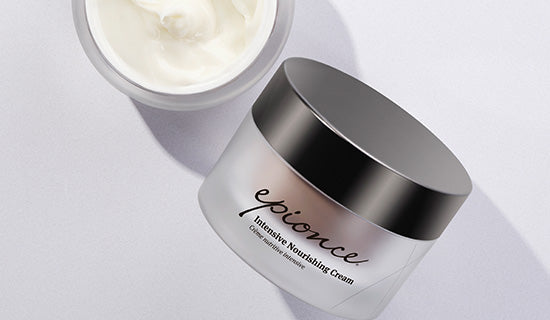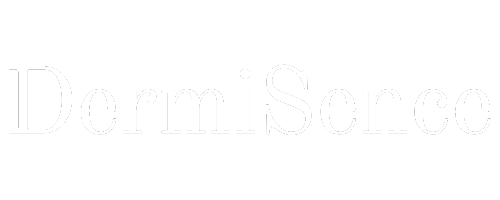
How to take care of your skin through menopause - Posted August 16, 2024 by Epionce The Magazine
Effective skin care is essential to maintaining healthy, glowing skin at any age. The skin must function to support the function of the skin barrier, help retain moisture and protect against pollutants, pathogens and UV radiation. However, the skin care products that help our skin thrive in our 20s and 30s may not have the same effect in our 40s, 50s and beyond. This is why it is important to adjust our regimens and products through the many changes our body and skin experience during our lifetime.
One of the most noticeable changes in a woman's body occurs during menopause. It begins with the perimenopause from around the age of 35 and increases noticeably when you reach the age of 40 - 50, i.e. menopause itself. And much like puberty, this time period is often anticipated with anxiety or dread. But it's important to remember that it's just a normal part of aging, and with the right tools, it can be another chapter that is mastered and completed in a beautiful way.
"Aging is a natural process that affects every cell in our body, and menopause is part of every woman's life experience. When skin is healthy, it is better equipped to withstand the effects of hormonal changes and the natural passage of time," explains Carl R .Thornfeldt, MD, FAAD and Epionce founder.
What is menopause?
Menopause is the biological process that marks the end of a woman's reproductive years and usually occurs between the ages of 40 and 50. While menopause isn't "official" until a year has passed since the last menstrual cycle, some women experience the effects of hormonal changes beforehand, even as early as their 30s, known as perimenopause. The most common time frame for the onset of these hormonal changes is between 40 and 44.
So, what's to blame? Most menopause symptoms are caused by the body's reduced estrogen and progesterone production. This drop in levels can manifest itself in hot flushes (feeling of heat in the skin), heavy sweating, mood swings, sleep problems and more.
How menopause affects the skin and skin barrier
These hormonal changes can also have significant effects on the skin, as falling estrogen levels are directly correlated to accelerated aging of the skin. The primary skin problems for women experiencing perimenopause and menopause are fine lines, dullness, blemishes, dark spots, dryness, itching and sensitivity. As a woman approaches menopause, the following changes may begin to appear:
Reduced collagen production: Collagen is an important protein for skin health. The production of this protein decreases due to hormonal changes when women enter menopause. Because of this, the skin begins to experience a loss of elasticity and visible firmness.
Sagging skin and wrinkles : Estrogen also stimulates fat deposits, which can be redistributed and concentrated in certain areas of the body during menopause. This loss of supportive fat under the skin on the face and body, in addition to reduced elasticity and visible firmness, often causes sagging skin and wrinkles to appear more prominent.
Thinner skin: Because blood flow to the skin decreases during this time, fewer nutrients and oxygen are able to reach the skin's surface. This, combined with slower skin cell turnover, contributes to a thinning of the skin and ultimately a weakened barrier function.
Dryness: Thinning can also lead to reduced moisture in the skin. Combined with the loss of natural oils, this can be a recipe for excess dryness and uncomfortable, tight skin.
Spots/acne : Breakouts during menopause are common, especially in the lower half of the face such as the chin, neck and jawline. This symptom of hormonal imbalance can feel particularly frustrating as the skin in these areas can feel dry and irritated at the same time.
Dark spots : As menopause progresses, the amount of melanin in the skin can also decrease. As a result, the skin is more prone to sun damage, melasma and dark spots.
How to keep the skin barrier healthy through menopause
At all ages, Epionce strives to deliver healthy, beautiful skin. The menopausal period is no different, with recommended skin care products for each of the most common skin concerns. Each healthy skin regimen includes a cleanser and lytic specific product for your skin type, plus a daily sunscreen. Beyond that, we've highlighted our must-haves for every common menopausal skin struggle.
Skin - Aging Must-Haves: To combat the visible signs of accelerated ageing, you want products that simultaneously provide cell nourishment, soothe irritation, strengthen the skin barrier and promote the skin's natural rejuvenation process.
Intense Defense Serum
Intensive Nourishing Cream
Blemish Must-Haves: To maintain clear pores, it is especially important to use products that work to remove impurities and calm problem skin.
Lytic Gel Cleanser or Purifying Wash
Purifying Spot Gel
Lytic Tx for your skin type
Dark Spot Must-Haves
To reduce visible blemishes and improve uneven tone, avoid harsh ingredients, such as hydroquinone, and instead use the full benefits of proven botanical ingredients
Dry Skin Must-Haves: To improve hydration and soothe uncomfortable skin, you'll want products with ingredients like soothing colloidal oatmeal and meadowfoam to keep scum at bay.
Enriched Firming Mask
Renewal Calming Cream
In addition to using the right regimen for a healthy and balanced skin barrier, Dr. Thornfeldt recognizes that "aging gracefully" requires a comprehensive approach both inside and out. "Together, making healthy lifestyle choices around diet, exercise, sleep and stress management – and committing to an Epionce skin care regimen – is the ideal path to optimizing skin health."
Consider the environmental factors that can also help with menopause. Things like…
Hydration: Maintaining hydration levels from the inside out is just as important as applying topical hydration. Increased water intake can help counteract dryness in the skin.
Nutrition and supplements : Eating for your skin health is no different, and a balanced diet rich in antioxidants, vitamins and healthy fats is the goal. Dietary supplements can also help support healthy function and appearance.
Lifestyle choices: Managing stress through techniques such as meditation and exercise, ensuring adequate sleep and avoiding smoking and excessive alcohol consumption will always ensure that your skin remains healthy, radiant and resilient.
While menopause can feel like a challenging time, " Embracing aging by taking good care of your mind, body, and spirit should be celebrated as a positive moment in everyone's life," notes Dr. Thornfeldt. And Epionce, along with the above habits, can offer significant support in reducing and overcoming symptoms.
Our suggested Epionce regimens are a recommendation only and may need to be adjusted by a dermatologist/nurse/physician based on factors such as skin care goals, skin type, sensitivity, age, gender, climate and lifestyle. Interested in learning more and finding the right regimen for you? Get in touch with one of our Epionce professionals – trained skin care professionals who will provide personal guidance tailored to your needs, or with us at Dermisence A/S



